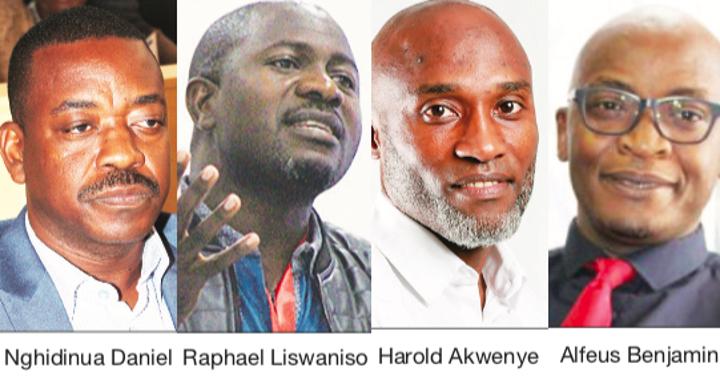Africa-Press – Namibia. LOCAL authorities and regional councils that have been supplying residents with free water in the fight against Covid-19 have been told to find ways to mitigate their losses.
Local authorities plummeted into debt in 2020 after the Ministry of Urban and Rural Development issued a directive, stating all residents should have access to water.
This was done as a relief measure to benefit needy residents – especially those living at informal settlements, who were financially hit hard by Covid-19 restrictions.
According to sources at various local authorities, the ministry at the time committed to paying these authorities’ water bills incurred as a result of its directive.
The ministry has now, however, indicated it would not be covering local auhtorities’ skyrocketing water bills.
As a result, major municipalities, such as of Windhoek, Walvis Bay, and Swakopmund are now left with titanic water bills.
Windhoek municipality spokesperson Harold Akwenye yesterday said the city owes the government N$90 million.
He said the ministry has paid only N$12 million towards free water since April 2020.
The ministry has, however, promised to pay for the water usage of residents in Windhoek’s informal settlements, he said.
“They only paid for three months, and from then, they never paid. That is why the council has decided to run a campaign to disconnect the free water, because people are now misusing the water, and the ministry is not coming forth to honour its commitment,” Akwenye said.
The Swakopmund municipality is owed close to N$100 million by various businesses, government institutions, and developers.
Swakopmund’s chief executive officer (CEO), Alfeus Benjamin, says this debt was incurred during the Covid-19 state of emergency, following the government’s free-water directive.
The municipality has since ordered debtors to settle their bills before March this year or risk disconnection.
Household consumers have till 1 April to pay their water debts.
“We had to ring-fence the usage of water in the marginalised areas and charge the line ministry for refunds. We are yet to receive our refunds in this regard. The rest of the defaulters were pursued through legal debt-collection methods,” Benjamin says.
As of 1 April the services of all defaulters without debt repayment arrangements or who have not settled their debt will be discontinued without notice and pursued through court action, he says.
The Katima Mulilo Town Council is also demanding over N$14 million in Covid-19 services from the government.
The council’s NamWater bill jumped from N$11 million to N$28 million for the 2020/21 financial year, according to the town’s CEO, Raphael Liswaniso.
“We can, however, report to our citizens that this debt has been reduced by N$10 million again. The only thing we need from the central government is to reimburse even 50% of the over N$14 million in Covid-19 services,” he says.
Walvis Bay has for the past two years pursued residents and businesses to pay their bills as they owe the municipality over N$290 million.
‘FIND SOLUTIONS’
Nghidinua Daniel, the executive director of urban and rural development yesterday said the central government should not be burdened by the matter alone, since it is a national matter.
He said the ministry has told local authorities to start enforcing their credit policies to recoup the money owed to them.
He said the ministry appreciates the role played by local authorities in the matter, but “they should not generalise that they are offering residents free water related to Covid-19”.
“There was no carte blanche directive distributed to say give everybody free water. We are appealing to local authorities to really use discretion and due diligence, and apply their credit policies where it is necessary and feasible.
“Those who can afford to pay must pay,” Daniel said.
He said local authorities should find innovative ways to supply water to those who cannot afford such services. Daniel said the government has been engaging NamWater and local authorities where such services have been rendered to the needy and they are not able to pay.
“The central government through the Ministry of Agriculture, Water and Land Reform has been engaging NamWater to understand and find ways to solve this issue of water.
“The ministry is addressing the issue through holistic and deliberate measures, and through engagement between the two ministries and NamWater and local authorities,” he said.
Daniel said the government will continue to engage stakeholders on finding resources “to see how we can help both NamWater and local authorities”.
For More News And Analysis About Namibia Follow Africa-Press






